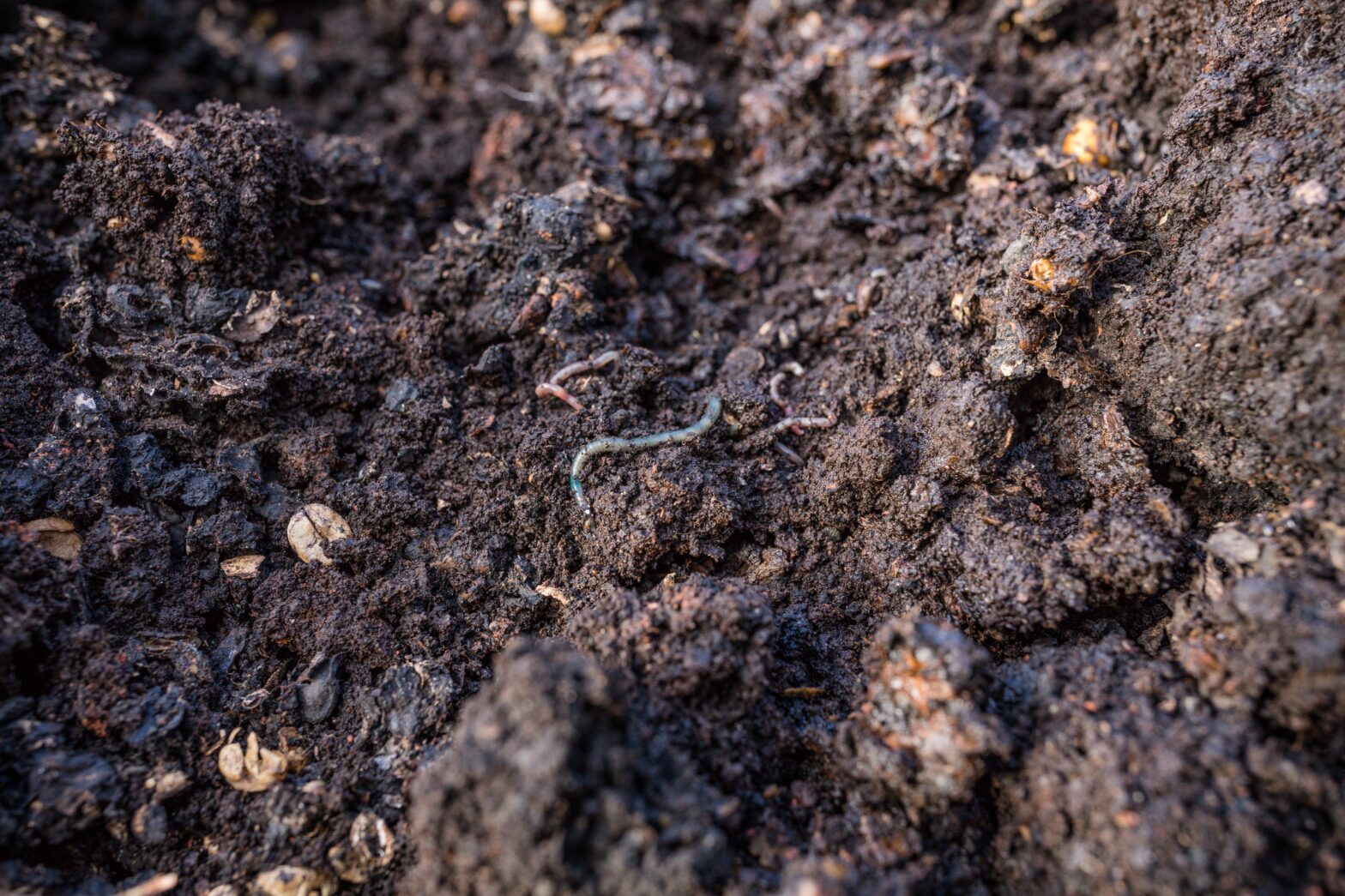Not all compost is created equal. Certain type of compost are going to be made up of different materials and may serve different purposes. Some types of compost are better than other kinds at adding nutrients to your garden. This article breaks down some of the most common types of compost.
Vermicompost
Vermiculture is finished compost broken down by the aid of worms, commonly red wigglers. The worms digest the organic matter and produce worm castings. Worm castings are great for your garden but nearly impossible to get in pure form, as it is difficult to completely sort out digested organic matter from undigested organic matter once it breaks down enough. Vermiculture, vermicompost, and worm castings are all terms that you may hear interchangeably having to do with compost made up of organic matter digested by the worms! If you’re interested in learning more about vermiculture, you can read this article. Midtown Composting also sells vermicompost that you can have delivered right to your doorstep.
Homemade compost
Homemade compost is just that- compost that you make at home. Homemade compost can be largely whatever you want. Yard clippings, food waste, cardboard can all help make up the perfect balance of nitrogen to carbon to make a balanced compost. Often times at home compost bins can be heavy on nitrogen (food waste) so paying special attention to make sure you are not adding too many greens to your compost bin is important for successful homemade compost. Homemade compost has the potential to be the best compost you can find if you do it right. If you’re eating a diverse nutrient rich diet with lots of vegetables you will have a rich compost blend that will provide valuable nutrients back to your garden. If you’re wondering how to achieve the perfect at home compost, as well as different methods of approach, check out this article.
Commercial compost
Commercial compost can contain synthetic additives to compensate for the lack of diversity in the compost. Oftentimes commercial compost facilities take anything and everything labeled compostable, this includes compostable cups and other tablewares. Anything like this is a corn byproduct that is both hard to break down and does not necessarily provide an abundance of nutrients to the plants. As is the case with any scalable model, quality can be hard to maintain past a certain point. While you can get good compost from commercial compost facilities, it may be worthwhile to see what they’re putting into their compost as well as what their practices are as a company. Any compost you buy from Midtown Composting comes from Tuthill Farms or Country Oaks Landscaping supply.
Grade A & B compost
Compost grades are not standardized and the terms are not regulated. The higher quality compost is often referred to as Grade A. I haven’t seen anything labeled Grade B, but we generally think of Grade B compost as industrial compost that may have weed seeds or some amounts of trash contamination. Grade A compost is usually sifted to a finer degree, though very high quality compost can be had with a product that is less well sifted. On our website you will see Tuthill labeled as” Grade B (high-quality compost, generated from food and yard waste, but it could use some sifting for more particular gardeners)” and Country oaks compost labeled as “grade A compost”. Country Oaks says “Creating the highest quality US Composting Council STA certified compost is something we are pretty passionate about. Not only are we one of only 3 STA certified compost producers in the State of Michigan, but we have now teamed up with Agrilab Technologies Inc. to create a truly state of the art composting system”
Midtown Composting labels and markets its compost as our supplies do on their websites but we, and most of our customers, feel that Tuthill compost is of higher quality than Country Oaks.
Yard Compost
Yard compost is compost composed of yard scraps. Using just yard scraps can help keep an easy balance of greens to browns (Greens, lawn clippings, browns, decomposing leaves). Grouping all your yard scraps into a pile and allowing them to decompose is a great way to get a compost pile started without having to worry about compost bins, or some of the issues that come alone with composting food, like attracting critters to your compost pile because of the food.
Conclusion
While there are many different types of compost, you would be hard pressed to find a type of compost that would not be a beneficial additive to your soil. Even something as simple as yard compost will have beneficial microbes after decomposing long enough, that will help your plants thrive.
